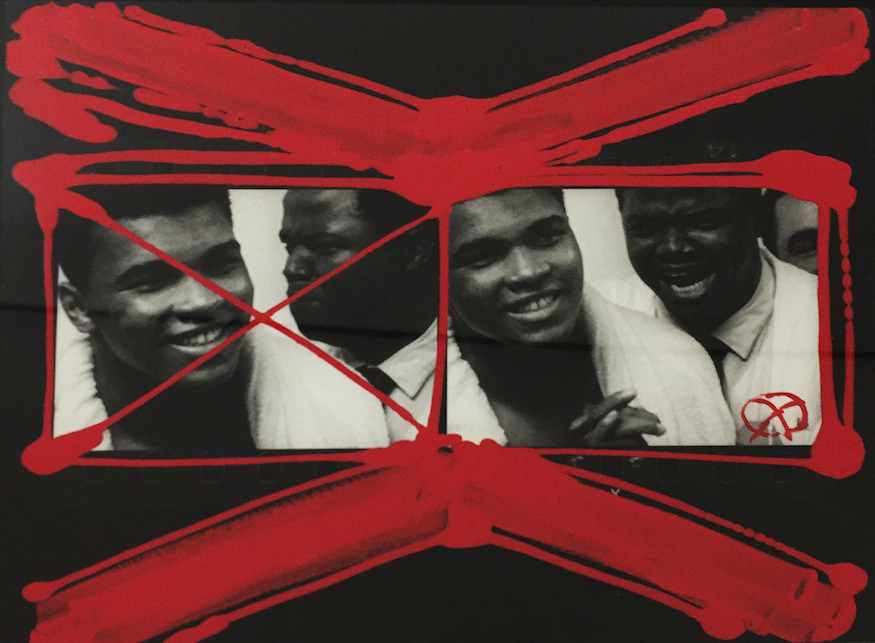Presiding over the opening of the striking new 28.5-million-euro (32 million dollar) glass cubic-shaped structure on Sunday in the eastern town of Dessau, Chancellor Angela Merkel declared Bauhaus to be "a good part of German history."
She Merkel said the Bauhaus stands for an avant-garde "which we still like today," describing the school as blending "art with craftmanship."
Hundreds of events have been taking place around the world marking the Bauhaus centenary. The design and building school was founded in 1919 in the German town of Weimar, where a new Bauhaus museum also opened in April.
Berlin's Bauhaus Archive is currently undergoing a 64-million-euro facelift, which is due to be completed in 2022.
Bauhaus moved to Dessau in 1925 after it was run out of town by Weimar's new right-wing led regional government claiming it had been "infiltrated by Jews."
But as Germany lurched to the right, the Bauhaus school was pack up in 1932 and shift from Dessau to Berlin, where the Nazis closed it down one year later branding it "degenerate art." Hitler's cultural tastes were more neo-classical, traditional and distinctly anti-modernist.
After initially dismissing Bauhaus as capitalist and anti-socialist, East Germany's communist rulers rediscovered the movement in the 1970's, as a result helping to boost an interest in the design school.
However, the new Dessau museum is not preoccupied with politics and Bauhaus' complicated past.
"We wanted to create a new cultural space," said museum director Claudia Perren.
Bauhaus' clean simple lines as represented in its lamps, furniture, textiles, tea sets and cooking knives are still part of daily life, both at home and in the office, and are "classics of modern design," Merkel told attendees at the opening ceremony.
Dessau also embodied the Bauhaus' heyday and is home to some of the movement's most famous landmarks, as a result turning the town into a major centre of Germany's cultural heritage.
This includes the so-called Masters' Houses along with buildings designed by the school's founder, Walter Gropius, such as the Toerten housing complex and the original Bauhaus Building, which is regarded as a seminal work of European modernism.
Spread across 1,500 square metres, the new museum holds one of the world's largest Bauhaus collections – 49,000 objects in total - with the main exhibition area known as the Black Box straddling the building's upper floor.
"We want to bring history to visitors in a different way, not chronologically," said the Dessau museum's curator Regina Bittner.
Museum officials want the building's vast collection of textiles, photographs, sketches, notes and artworks help to take visitors back to Dessau in the 1920s and to show how Bauhaus worked as a school and the community it created in the town.
Nestled between Dessau's city park and the town's main shopping drag, the new museum’s "clean lines and simple form establishes a direct relationship" with Bauhaus construction principles, said the building's Barcelona-based architect Roberto Gonzalez.
But the history of Bauhaus also helps to tell the story of Germany's often-turbulent past.
Formed in the chaotic days following the end of World War I by the German architect Walter Gropius, Bauhaus captured the spirit of the age to shape a prototype of the new lifestyle that emerged in interwar Germany. The school's influence also spilling over into dance, theatre, art and music.
Hitler's closure of the Bauhaus in Germany, however, resulted in many of its leading figures heading into exile, consequently spreading the movement's principles to other parts of the world, including in Chicago, Tel Aviv and Moscow.
But nearly 75 years after the implosion of Hitler's Reich, Bauhaus still finds itself the unwelcome target of Germany's extreme right.
About two years ago, more than 120 neo-Nazis marched on one of Dessau's historic Bauhaus building. A year later Bauhaus officials were forced to cancel a concert with a left-wing punk band amid fears that it could again be the target of right-wing protests.
This in particular was the case after plans for the concert came under fire from the right-wing populist party the Alternative for Germany, which has made considerable strides in recent elections, including in Dessau.
But for many, the museum's decision to abandon the concert had unwelcome echoes of previous attempts to stifle or shut the movement down.
-----------------------------------------------------------------------------------------------------









 Home
Home Politics
Politics











